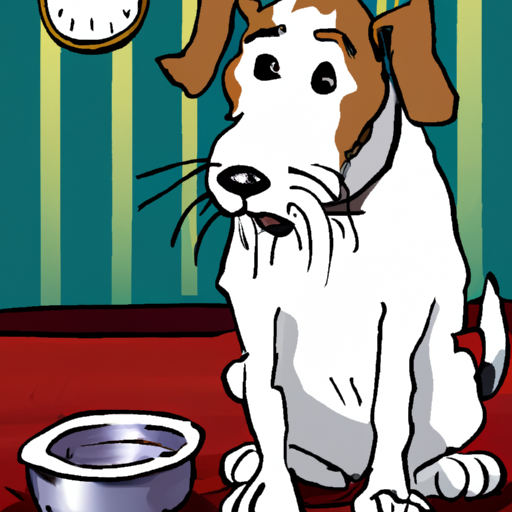Understanding Your Dog’s Nutritional Needs
As a caregiver, you’re always looking out for the wellbeing of those in your charge. When it comes to your beloved canine companion, understanding their nutritional needs is paramount. Dogs, much like humans, require a balanced diet to maintain their health. While dogs might not need to eat as regularly as we do, going for extended periods without food can be detrimental to their health.
- Protein: Dogs require a high amount of protein in their diet. They are, after all, descendants of wolves and are biologically designed to consume and process meat.
- Carbohydrates: Contrary to popular belief, dogs do need some carbohydrates in their diet. These provide the necessary energy for them to remain active and playful.
- Fats: Fats provide essential fatty acids and serve as carriers for vital vitamins.
- Vitamins and Minerals: These are necessary for various bodily functions, from bone growth to muscle development.
The Dangers of Starvation
Dogs can technically survive for about 3-5 days without food. However, this does not mean that they should be left without food for this long. The effects of starvation begin to show long before this period.
- Loss of Muscle Mass: The first sign of starvation is a loss of muscle mass as the body breaks down protein for energy.
- Weakened Immune System: Without proper nutrition, your dog’s immune system starts to weaken, making them more susceptible to diseases.
- Organ Failure: In extreme cases, prolonged starvation can lead to organ failure and death.
| Days Without Food | Effects |
|---|---|
| 1-2 | Loss of energy |
| 3-4 | Muscle loss |
| 5+ | Organ failure |
How to Recognize If Your Dog is Hungry
Your dog can’t verbally tell you they’re hungry, but there are signs you can watch out for:
- Increased aggression
- Excessive licking or chewing
- Changes in behavior or mood
- Low energy levels
Feeding Your Dog After a Period Without Food
If your dog has gone without food for a while, it’s important not to rush the feeding process. Begin with small portions of easily digestible food. Gradually increase the portion size and reintroduce their normal food over several days. This will prevent overwhelming their digestive system.
Some Reasons Why Your Dog Might Not Be Eating
Your dog might stop eating for a variety of reasons, some of which include:
- Illness
- Stress or anxiety
- Changes in diet
- Dental problems
If your dog refuses food for more than a day, it’s important to consult a vet immediately.
FAQs
Q: Can dogs survive without food for a week?
A: Technically, yes. But it’s not safe or healthy.
Q: What should I do if my dog hasn’t eaten in 2 days?
A: Contact your vet. It could be a sign of underlying health issues.
Q: Can a change in diet cause my dog to stop eating?
A: Yes, sudden changes in diet can cause digestive upset and loss of appetite. Always transition slowly between foods.
Your vigilant care and understanding of your dog’s nutritional needs can ensure that they never have to experience the detrimental effects of going without food. Always remember, when in doubt, consult a vet.



